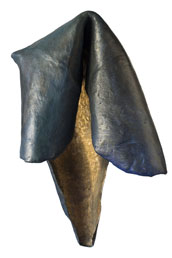Pages: 1 2
The moral is that it is ‘narrative’ which creates an objective world that we then invest with ‘reality’, with meaning; that the reality we construct rules our lives, sinks into the unconscious and settles heavily with the force of ‘divine’ truth. The objective world mirrors fiction because our realities are moulded by stories we tell ourselves and invest with ‘truth’ – as Laurentina’s surrogate father does in Agualusa’s story. It is not for nothing that fiction is believable, that we suspend disbelief while watching a movie, a play or while reading a story – because if you can imagine it, then it is possible, so to speak. In short, we create and negotiate reality. This is because as opposed to those mimetic theories, which insist that fiction mirrors the objective world, sometimes the objective world mimics fiction. This is particularly so when, and since, our reality are human constructions that have no solidity in any ‘real’ world ‘out there’ – if we are willing to suspend the fiction of the ‘divine’ or ‘natural’ for a minute.
In Arabia the man in the street has broken his shackles, which was welded together in the smithy of the stories he has been told – religious stories, myths of origins, and nationalisms, of the infallible and benevolent cult figure of the leader – next-of-kin to ‘God’, in whose name the former demands, commands, indeed wills a blind, iron allegiance to a repressive Islamic state. In sit-com-like moments besieged political leader after leader told and still tells alternative stories, selling fictions, rewriting events in contradiction to global public knowledge of facts. Saif Al-Islam, Muammar Gaddafi’s son and official megaphone, has been a more consummate spinner of tales than anyone else. He is like the black albino in Agualusa’s The Book of Chameleons, “whose profession it is to invent ‘better pasts’ for Angola’s new elite.”
Saif Al-Islam invents ‘better pasts’ with Gaddafian truculence to legitimise his dynasty’s inordinate desire to hold unto power. He insults the intelligence of the global public in proclaiming like ‘God’ that ‘there is no problem’, ‘the people of Libya are happy with their leader’, ‘there are no riots or disaffection.’ To do this he inhabits an in-between world of mirrors. He loses himself in his own fictional and imaginary world and becomes delusional – much like a cartoon figure as he lies away copiously on the TV screen, mouthing words that have no referent of meaning in the face of riots, albeit officially denied, which raged on Libyan streets and, finally led to the ongoing civil war in that country. Lies, when told often enough, become true. Every propagandist knows this. In Erdgal’s review of Agualusa’s The Books of Chameleons “[o]ne character […] – a novelist – when pressed to say whether he writes lies deliberately or out of ignorance, declares that he is a liar by vocation, indeed he lies with joy. Fictions, so we are to understand, are uniquely suited to getting at truths.” While that is true for didactic purposes, it is clear that the stories we tell ourselves create our reality.
It is well known that Mahfouz was branded an apostate by the Islamic right. He was hounded in late life, threatened and attacked viciously. But he is getting his revenge. In the scriptural novel – much like Children of Gebelawi – which Mahfouz writes from the grave and which is now filming in the Middle East, he irritates the religious right. In his sublime fashion he sets up to fictionalise the Bible, the Al Quran, Bhagavad-Gita or Srimad Bhagavatam, the Mahabharata and so on. As preface he poses the disclaimer: ‘These are works of fiction. All names, places, characters, and incidents are a product of the author’s imagination. This is why…first it was sunny Tunisia, next the jewel, Egypt; …’ Mahfouz writes like this to let us know that his fictionalisation of the scriptures is not fiction precisely because it is fiction. We are (not) free to believe what we want. The streets of Syria, Jordan, Bahrain, Libya, Saudi Arabia etc prove him right. They now believe other stories.
Pages: 1 2





No Comments so far ↓
There are no comments yet...Kick things off by filling out the form below.